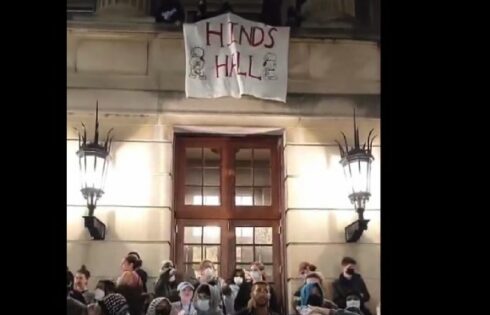If you don’t fully accept the progressive ideology of higher education, you’ll be put on notice.
That’s the point George Leef, of The Martin Center for Academic Renewal, makes in a new article posted on the think tank’s website. He argues recent examples show universities will try to eliminate professors who aren’t in lockstep with the dominating ideology of their profession.
From the article:
College officials have cultivated a nice image for themselves—scholarly people who care deeply about providing the best possible education for their students. The reality, however, is often very different. They can be petty, self-serving, and ideological, sometimes sacrificing educational quality in favor of other objectives.
Occasionally, faculty members become inconvenient to the leadership and must be eliminated. Two recent cases show college leadership at its worst.
One case is Dennis Gouws, an English professor at Springfield College who long taught a “Men in Literature” course that received a student complaint in 2015, according to Leef. The university now plans to fire Gouws, The College Fix reported last month.
There would have been a different approach to the situation in the past, Leef suggests:
In a sensible era, officials would have said, “Well, then take something else if you’re offended,” but “progressive” academics seem incapable of insisting on common sense from students these days, especially if they’re in one of our supposedly oppressed groups. At Springfield, the result of the student’s gripe was to trigger what Wood terms “a feminist jihad” against a veteran, highly capable faculty member.
The other case Leef highlights is the termination of adjunct professor Nathaniel Bork at Aurora Community College:
Next consider Nathaniel Bork, an adjunct professor at Aurora Community College in Colorado. He’d been teaching philosophy and comparative religion at the college as an adjunct professor since 2010, without any incident.
Now Bork has lost his job because he didn’t agree with the administration’s efforts at making introductory courses easier to pass.
Leef writes these two examples show a lack of oversight in higher education:
What these cases (and many similar ones) demonstrate is the weakness of oversight in higher education. College officials shouldn’t think they have free rein to pursue petty vendettas against faculty members or fire those who want to uphold standards, but often they do.
Read the full article.
Like The College Fix on Facebook / Follow us on Twitter




Add to the Discussion